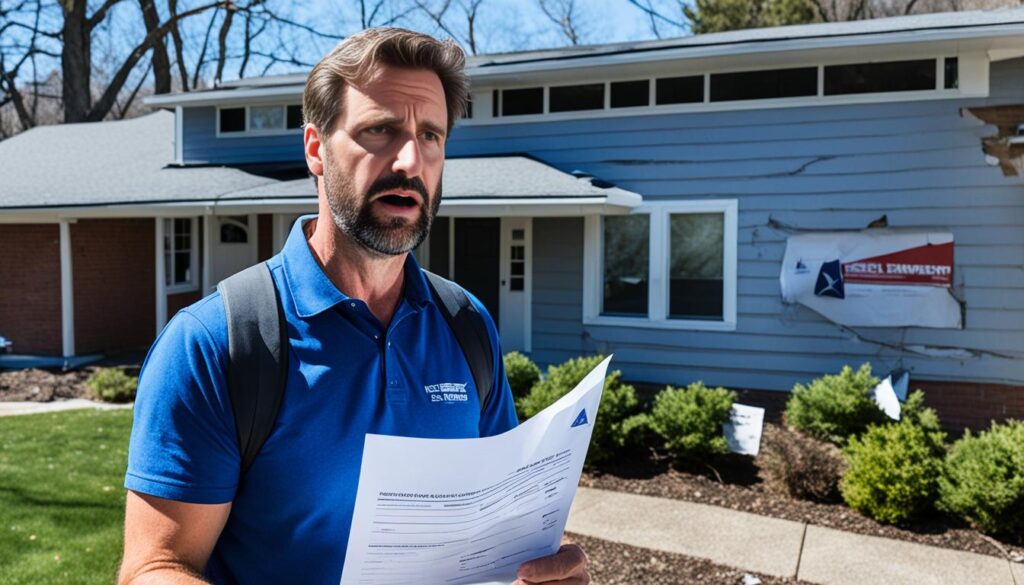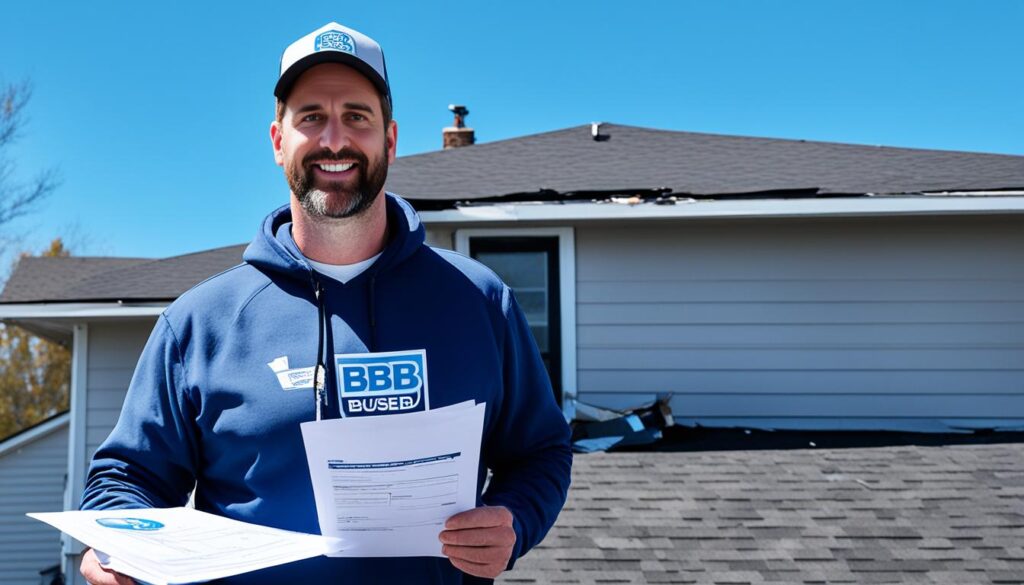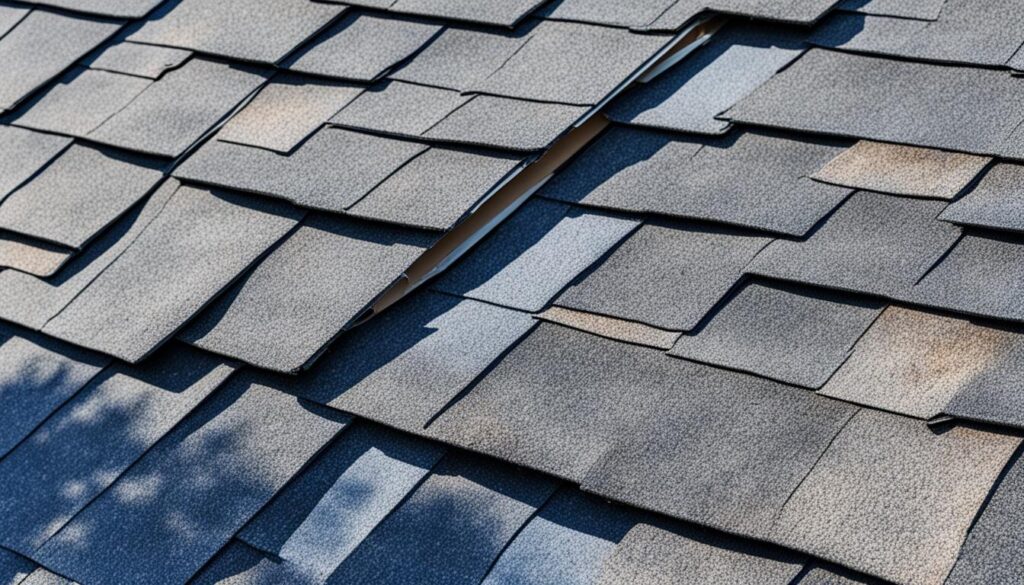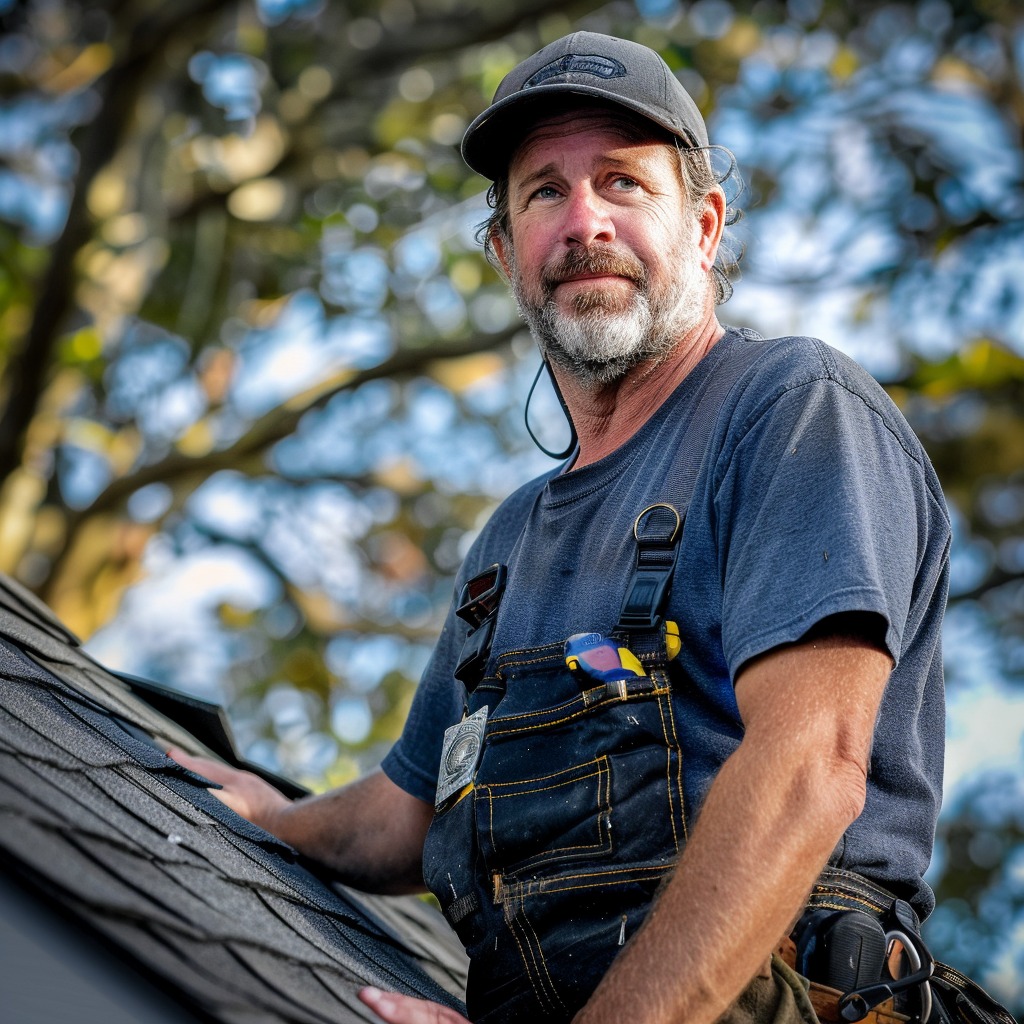
Have you been through a roofing nightmare lately? Wondering what to do about a lousy roofing job? You’re not alone. This article will dive into your legal options. We’ll look at how to tackle disputes, file complaints, and get rightful compensation for a poorly done roof.
Protecting your investment is key. It’s important to know the steps to take when roofs go wrong. Whether it’s leaks, bad installs, or other mistakes, understanding your rights matters. It can help you stand up to those at fault.
Key Takeaways:
- Understanding your roofing contractor’s workmanship warranty can help determine your options.
- Filing a complaint with the state’s licensing board or the Better Business Bureau can provide mediation and resolution.
- Consider civil litigation as a last resort for seeking compensation for a bad roofing job.
- Recognizing signs of a poor roofing job can help determine if you have grounds for complaint or legal action.
- Thorough documentation and professional consultation are essential for a successful resolution.
Understanding Workmanship Warranties
When you get a new roof, understanding the workmanship warranty is key. This warranty guards against mistakes in installation. It makes sure you won’t have to pay for fixing shoddy work.
Roofing contractors give workmanship warranties to fix any problems or leaks from a bad install. This warranty brings peace of mind. It means you won’t pay extra to fix their mistakes.
The length and details of these warranties can differ. Some may last a few years, others a lifetime. Check your contract to know how long and what exactly is covered.
If roof issues appear after the warranty ends, fixing them might be on you. Knowing your warranty’s details is important. Act fast if any problems show up while it’s still valid.
Grasping your warranty’s terms is crucial. If it’s unclear, talk to your contractor for more info.
Imagine finding a leak months after your roof was put in. If still in warranty, the company should fix it for free. But, if the warranty ended, fixing it could be on you. This shows why being on top of your warranty is vital.
Know your roofing contractor’s workmanship warranty well. It can save you from installation mistakes. Make sure to go over the warranty and ask about anything you’re unsure of. The warranty is there to keep you worry-free and trusting in your roof’s quality.
Filing a Complaint with the State’s Licensing Board
If your roofing contractor won’t fix their work under the warranty, you can complain to your state’s Licensing Board. This board checks if roofers are licensed, bonded, and insured, and helps with bad roof work issues.
A good roofer must have all the right qualifications to work on your roof. By talking to the state’s Licensing Board, you start a process to fix the problems caused by the poor work.
Gather any papers that prove your case, like the contract and photos of the problems. Also, include any talk you had with the roofer about the issues. It’s important to clearly tell the Board what’s wrong and how the contractor hasn’t done their job right.
The Licensing Board will look at your complaint and do what’s needed. They might check the contractor, fine them, or make them fix the roof or pay for repairs.

Filing a Complaint with the Better Business Bureau
If you get bad service from a roofing company, you can complain to the Better Business Bureau (BBB). The BBB is a non-profit. It helps keep businesses honest and handles disagreements between customers and firms.
To tell the BBB about your problem, go to their website. You’ll need to describe the issue and give any proof you might have. Include the problem details and when you talked to the company.

After you complain, the BBB will get in touch with the company. They aim to help you both talk and find a solution. But, remember the BBB can’t force the company to do anything.
Complaining to the BBB can highlight your issue and maybe fix it. But, know they are a middleman. They give the company a chance to respond. If the company still doesn’t help, you might look at other ways to solve the problem.
So, complaining to the BBB is a good step if you’re not happy with a roofing company’s work. It helps you and the company talk. Just know, the BBB might not always solve the problem. If they don’t, you might need to get legal advice next.
Exploring Civil Litigation as a Last Resort
Civil litigation is a serious step, used when all other options are gone. It means hiring a lawyer and suing the roofing contractor in court. This path is costly, and success is not certain. Yet, it allows you to seek payback for a poor roofing work. It’s vital to talk to a lawyer who knows the law well. They can help you understand if your case has a chance.
Recognizing Signs of a Bad Roofing Job
Quality work on your roof is vital for its long life and your home’s safety. If you think the roofing job is done poorly, it’s key to spot bad work signs. Knowing these signs helps check if you should complain or take legal steps.
Here are signs to look for in a bad roofing job:
- An uneven or bumpy appearance: A poorly installed roof looks wavy or uneven.
- Improper ventilation: Not enough airflow can cause moisture problems.
- Immediate leaks after installation: Leaks right after a new roof means it wasn’t done well.
- Compromised roof decking: Signs like sagging or rot show the foundation wasn’t good.
- Sagging rooflines: Dips or sagging on the roof is a sign of weak support.
- Color or material variation in shingles: Not the same color or quality in shingles means little care was taken.
- Missing or damaged shingles: If shingles are missing or broken, water can leak in.
- Reused old flashing: Reusing old flashing can make your roof more vulnerable to leaks.
- Crucial components not being reinstalled: Missing essential parts like drip edges can harm your roof.
Finding these bad work signs is crucial. It helps understand if the job is well done and if you can complain or sue. If you see these signs, talk to a roofing expert. They can check the issues and advice on your next steps.

Conclusion
Dealing with a bad roofing job is frustrating and costly. But you should know your legal options. This will help resolve the issues.
First, check the roofing contractor’s warranty. Try to use it to fix the poor work. If they won’t help, think about filing a complaint. You can go to your state’s licensing board or the Better Business Bureau. They might help by mediating and getting you compensation for the bad job.
Civil litigation, or suing, should be your last choice because it can be expensive. Before ingoing to court, make sure to document the problems. Then, talk to experts to find other repair options. Being proactive and seeking advice can lead to better decisions. It ensures you handle the bad roofing work in the best way.

Meet William Adams, a seasoned roofing expert with over 30 years of hands-on experience in the industry. Having worked tirelessly under the scorching sun and through the fiercest storms, William brings a wealth of knowledge and expertise to the table. Hailing from the heart of the USA, he’s witnessed the evolution of roofing practices firsthand, mastering every aspect along the way. Now retired from the field, William spends his days cherishing time with his loved ones while sharing his invaluable insights through this platform. With William at the helm, you can trust that every tip, advice, and recommendation provided is backed by years of real-world experience and unwavering dedication to quality craftsmanship. Join us as we journey through the world of roofing, guided by the wisdom and passion of a true industry veteran.
